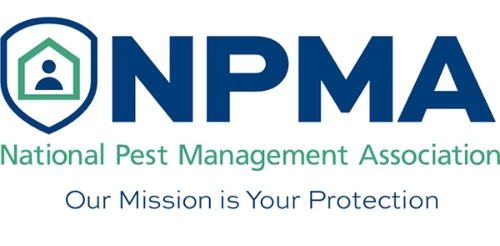Termites: renowned architects of the insect world—secretive, silent, and often misunderstood. One question frequently surfaces in discussions about these diminutive creatures is: do termites bite? Both homeowners and enthusiasts frequently have this question about termites—including others concerning their characteristics, behavior, and potential threats.
This comprehensive guide will delve into this and other pressing queries. Will termites bite your beloved pets? How do you identify termite bites? Can termites pose serious risks to your home or your health?
By the end of this informative journey, you’ll be equipped with answers and actionable insights on termite prevention. Whether you’re battling an infestation or are fascinated by these enigmatic insects, get ready to uncover the secrets and behaviors of termites.
Do Termites Bite Humans?
Termites are known for their destructive feeding habits on wood and cellulose-containing materials. This raises the essential question: Do termites bite humans? Understanding the behavior of termites is crucial in assessing the risks they may pose to people.
Firstly, termites are not naturally aggressive towards humans. Their primary focus is sourcing food for their colony, consisting of materials like wood, not human flesh. However, some species can bite humans when termites feel threatened or their nest is disturbed.
The soldier termites are the colony’s protectors and have mandibles strong enough to fend off predators. While they can bite if handled or provoked, their bites are not toxic or known to transmit diseases. It’s important to note that termite bites are not common and are generally not considered a significant health risk.
The likelihood of experiencing a termite bite is exceptionally low, but if it does happen, here’s what you can expect and how to handle it:
- Symptoms: A termite bite may result in a small red bump, which can be itchy or slightly painful. The severity of the reaction depends on the individual’s skin sensitivity.
- Treatment: A termite bite is a minor irritation that can be treated with antiseptic creams and gel to relieve itching and prevent infection.
- Prevention: Wearing protective clothing when dealing with or near a termite-infested area can lower the risk of bites.
- Professional Assistance: If you’re dealing with a termite infestation, contacting pest control services is advisable rather than attempting to handle the situation on your own, minimizing the risk of any bites.
While the idea of termites biting humans can be concerning, such incidents are incredibly rare and of minor medical consequence. Proper handling and professional assistance are essential to prevent rare termite bites and manage termite-related issues.
Can Termites Bite My Pets?
Worried pet owners often wonder about the risks termites may pose to their furry companions. Although termites aren’t known for being a direct threat to pets, it’s a legitimate concern to question whether your pet could be bitten while curiously sniffing around a termite-infested area.
Termites do not typically target animals as a food source or out of aggression. Still, as with humans, there are circumstances in which a pet might be bitten:
- Curiosity: Pets, especially dogs, may disturb a termite nest or colony while digging or playing outdoors, provoking soldier termites to defend their home.
- Accidental Contact: If your pet accidentally steps on or lies down near a termite colony, the termites may bite in self-defense.
- Types of Pets: Smaller pets, such as reptiles or birds in cages, might be more vulnerable if a termite infestation is nearby and they cannot escape the threat.
However, as termite bites are rare and minimal for humans, they are unlikely to harm pets. If your pet does happen to get bitten, here’s what to do:
- Check for Bites: Examine your pet’s skin for small red marks or irritation, particularly if you notice them scratching or acting uncomfortable.
- Treatment: Most bites will heal on their own. Still, if you notice excessive redness, swelling, or signs of an allergic reaction, contact your veterinarian.
- Prevention: Protect your pets by controlling termite infestations in your home and garden. Ensure your outdoor area is free from wood debris and other termite attractants.
Ultimately, the risk of termites biting pets is low. With general household precautions and termite control measures, you can keep your beloved animals and home safe from these wood-loving insects.
How to Identify Termite Bites?
Understanding what termite bites look like is vital in distinguishing them from other insect bites. However, since termite bites on humans are such a rarity, other pests often cause skin irritations that might be mistaken for termite bites.
Should you suspect a termite bite, here’s what to look out for:
- Appearance: Termite bites are often small red and may cause minor swelling. They look similar to ant bites and are less defined than mosquito bites.
- Location: Since termites are not drawn to humans for blood like mosquitoes, bites would likely occur on feet or lower legs, the parts most likely to come in contact with termites on the ground.
- Sensation: A termite bite may be itchy or painful, though generally less so than a bee sting or spider bite.
To accurately identify a termite bite and differentiate it from other insect bites or stings, consider these factors:
- Context: If you have been in an area known to have termite activity or have disturbed a suspected termite nest, bites on exposed skin may likely be from termites.
- Response: Unlike bees or wasps, termites don’t leave stingers behind. And unlike ticks, they don’t latch on and must be removed.
- Symptoms Over Time: Termite bites should not worsen significantly over time. If you notice increased pain, swelling, or other severe reactions, it’s more likely from another type of insect.
If in doubt, consult a medical professional to determine the nature of the bite and the proper course of action. It’s also wise to contact pest control services if you suspect termites are present around your living area to prevent potential damage and reduce the risk of any bites.
Are Termite Bites Dangerous to Humans?
When considering the question of danger, it’s crucial to understand that termite bites, in the rare case that they occur, are usually not harmful to humans. However, some may wonder whether termite bites can lead to health complications.
Here’s what the research and evidence suggest:
- Toxicity: Unlike some spiders or snakes, termites do not possess venom, and their bites are non-toxic. There is no poison to cause systemic reactions in the human body.
- Allergic Reactions: Most people will experience no more than minor irritation. In very rare cases, someone may have an allergic reaction to a termite bite, which would require medical attention.
- Secondary Infections: As with any small wound or skin breakage, secondary infection is inherent if the bite is not kept clean or excessively scratched.
The actual danger from termites doesn’t come from their potential to bite but from their ability to damage structures:
- Property Damage: Termites can cause significant structural damage to buildings, which could, in extreme cases, lead to unsafe conditions.
- Economic Impact: The cost of repairing termite damage can be substantial, running into billions of dollars annually worldwide.
While termite bites shouldn’t cause significant health concerns, their impact on property should be taken seriously. Preventive measures and prompt treatment of termite infestations are crucial to avoiding the more consequential risks associated with these insects.
How Do Termites Affect Allergic Individuals?
Allergies and asthma can be triggered by a variety of environmental factors. Though termite bites are usually not dangerous, some individuals may have concerns about allergic reactions. These reactions, however, are more commonly related to the presence of termites and their byproducts rather than bites.
Environmental factors associated with termites that may affect individuals with allergies include:
- Termite Droppings: Also known as frass, termite droppings can accumulate and become airborne, potentially worsening symptoms for those with respiratory conditions.
- Mold and Fungus: Termites often facilitate the growth of mold and fungi by creating damp conditions within structures. These organisms can be allergens for some people.
If someone in your home suffers from severe allergies or asthma, here’s what to consider:
- Monitor Symptoms: Monitor allergic reactions or respiratory issues that may correlate with termite activity in the home.
- Air Quality: Invest in air purifiers or improve ventilation systems to reduce the impact of airborne irritants such as frass or mold spores.
- Regular Inspections: Inspect your home for termite activity and related issues like mold growth to tackle problems before they exacerbate allergy symptoms.
- Professional Guidance: Seek advice from allergy specialists and inform them of any possible termite-related concerns to develop a comprehensive approach to managing symptoms.
Although termite bites are not a significant allergy concern, the overall environmental impact of a termite infestation can contribute to allergic reactions. Proactive management and professional advice are recommended to maintain a healthy environment for those with allergies.
What Measures Can Prevent Termite Bites?
Since termites rarely bite humans, prevention is more about managing and eliminating termite infestations than avoiding individual bites. However, understanding how to reduce your exposure to termites can minimize the already low likelihood of being bitten.
To prevent termite bites, incorporate the following strategies:
- Reduce Wood-to-Ground Contact: Termites enter structures from the ground, so limit wood-to-soil contact near your home.
- Maintain a Dry Environment: Termites thrive in moist conditions. Ensure your property has proper drainage, fix leaks, and control humidity.
- Regular Inspections: Schedule yearly termite inspections, especially if you live in a termite-prone area.
- Eliminate Food Sources: Remove tree stumps, debris, and unused lumber from your property, and ensure woodpiles are stored off the ground and away from the house.
- Barriers: Consider installing physical or chemical termite barriers around your property during construction or as a preventive measure.
- Professional Pest Control: Engage a reputable pest control service for termite treatments if activity is detected.
While personal physical protection is not commonly needed, if you must handle wood or debris suspected of termite activity:
- Wear Gloves: Thick work gloves can provide a barrier between your skin and termites.
- Cover Skin: Long sleeves and pants can protect your limbs when working in termite-infested areas.
Proper home maintenance, environmental management, and professional interventions are the best measures to prevent termite bites and avoid the potentially devastating effects of termite infestation on your property.
Can Termites Bite Through Clothing?
Curiosity about termites often concerns whether these insects can bite through various barriers, including clothing. Naturally, many wonder if dressing protectively might fend off termites.
Termites, specifically the soldier class, have powerful mandibles designed to break through tough plant fibers and protect their colonies. However, the force required to bite through clothing is generally beyond their capability due to several reasons:
- Fabric: Most fabrics are tightly woven, presenting a challenge to termite mandibles adapted for softer materials like wood.
- Behavior: Termites do not seek out humans as a food source, so they have little to no instinctual drive to chew through clothing.
If you work or find yourself in areas where termites are present and are still concerned about the remote possibility of bites, consider the following tips:
- Protective Gear: Wear heavy-duty clothing such as jeans or canvas, which provide tougher barriers than lighter materials.
- Sealed Entry Points: Use boots, tuck pants legs into socks, and ensure sleeves are tight at the wrists to prevent termites from crawling underneath clothing.
- Chemical Repellents: Although not usually necessary, using insect repellent on clothing can discourage termites from approaching.
Ultimately, being mindful of clothing as a deterrent to termite bites is largely unnecessary, but for peace of mind when handling termite-infested materials, wearing the appropriate gear can help ease any worries.
What Are the Long-Term Risks of Termite Bites?
When evaluating the risks associated with termites, they often focus on the extensive property damage they can cause. However, for those concerned about the long-term dangers of termite bites, it’s reassuring to know that such risks are minimal.
Termite bites are:
- Non-Venomous: Unlike some insects or arachnids, termites do not inject venom, eliminating concerns about long-term toxin-related effects.
- Rare: Since termite bites are so uncommon, the probability of chronic issues resulting from these bites is extremely low.
- Minor Skin Irritants: Any mild reaction, such as itching or swelling, typically resolves within a few days without long-term implications.
Long-term risks from termites are more related to infestations’ damage and economic losses. However, to ensure there are no lasting effects from any termite encounters:
- Maintain Health Records: If you receive a bite and have a reaction, record the incident and outcome in case of future bites or related medical inquiries.
- Monitor Healing: Pay attention to the site of any termite bites to ensure proper healing and check for signs of unusual reactions.
While termite bites should not result in significant long-term health issues, it’s always a good practice to be observant and proactive about your health following any insect bite.
What Are the Common Mistakes of termites for food sources?
Understanding what termites may mistake for their food sources can help protect you from unintended bites and safeguard your property. Termites are driven by instinct to consume cellulose found in wood and other plant materials.
Items that termites may mistake for food sources include:
- Mulch: Often used in landscaping, mulch can attract termites if placed too close to the foundation of a house.
- Cardboard and Paper: These materials can be particularly appealing to termites because they are easy to break down and rich in cellulose.
- Dead Plants and Trees: Decaying organic matter in your yard is a prime target for termites.
- Lumber: Construction debris or stacked firewood against a home can directly invite termites.
To prevent enticing termites and the remote possibility of a bite:
- Keep Yards Clean: Regularly dispose of plant debris, including fallen branches and leaves.
- Store Wood Properly: Keep firewood off the ground and far from your home’s exterior.
- Use Termite-Resistant Materials: When landscaping, choose mulch made from materials less palatable to termites.
- Regular Maintenance: Inspect and maintain your home’s wood structures to ensure they are moist and in order, as this can attract termites.
By being aware of what termites look for in their quest for sustenance, homeowners can take necessary precautions and reduce the chances of termite infestations and the very low risk of termite bites.
How Do Termite Bites Compare to Bites from Other Insects?
Comparing termite bites to those from other insects can clarify the potential impact on humans and help identify the culprit behind a bite. While termite bites are infrequent and have minor consequences, other insect bites can be more bothersome or dangerous.
Here’s a comparison between termite bites and bites from other common insects:
- Mosquito Bites: Mosquito bites are itchy, cause more pronounced welts, and can transmit diseases.
- Ant Bites: Some ants, like fire ants, deliver painful, venomous stings that can trigger allergic reactions.
- Flea Bites: Fleas tend to bite lower body areas, causing small, itchy, red bumps often appearing in clusters.
- Bed Bug Bites: These bites often appear in lines or zigzag patterns and can cause significant itching and discomfort.
By understanding the characteristics of different insect bites, one can respond appropriately to termite bites and:
- Identify the Source: Determine whether it’s likely that a termite is responsible for a bite or if another pest might be the culprit.
- Seek Proper Treatment: Knowing the type of bite can guide you toward the proper treatment and whether medical attention is warranted.
- Implement Control Measures: Identifying the insect allows you to address the root of the problem effectively, be it through cleanliness, pest control, or physical barriers.
Even though termite bites share similarities with other insect bites, they are considerably less problematic regarding health implications. They signal to check for potential termite infestations rather than a cause for medical concern.
Conclusion
The tales of termites may be filled with destruction and stealthy devastation of structures. Still, termites are not the nightmarish creatures some might fear when it comes to personal harm through bites. Through this exploration, we have put to rest many concerns by establishing that while termites can theoretically bite, such occurrences are rare and not medically serious.
We’ve covered essential ground from learning how to identify termite bites to understanding their impact on allergic individuals and knowing what attracts them so avoidance is possible. Termite management is paramount; the real risk lies in unchecked infestations causing property damage. Remember, vigilance and professional expertise in termite control are your best defenses.
For those now keen to safeguard their homes and perhaps curious about natural ecosystems where termite bites may be part of a larger ecological dynamic, it’s time to act. Connect with pest control experts or continue to educate yourself about these creatures that play a significant role in nature and our human-centric world.
Above all, maintain a termite-conscious approach to home maintenance because, in most experiences, the greatest bite termites will be out of your home, not your skin.



